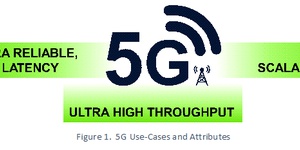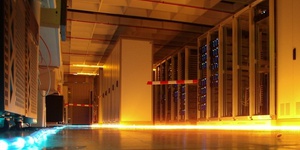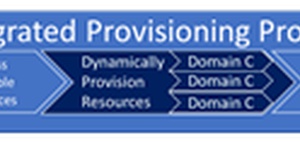
Whitepapers
Next-Generation Cloud Metro Network Requirements and Architectures
Cloud computing, edge computing, 5G, and metro networks are converging with the promise of offering new categories of consumer and enterprise services. Network operators expect to generate new revenues with edge services, which could help accelerate growth throughout the decade. However, for next-generation 5G and edge services to become a success, network operators need to transform their networks and their operating models.
Many edge technologies, such as Open RAN, MEC, video CDN, Industry 4.0, and AR/VR, have strict constraints around bandwidth, latency, and security. Network traffic is continuing to grow, and a significant share of traffic will be terminated in regional and metro edge compute nodes. This means that there will be fundamental shifts in metro network requirements and architectures. Metro topologies will include both ring and spine-leaf architectures; access and aggregation bandwidth will increase from 1 Gbps to 10/25/50/100/400 Gbps; and network slicing will become a critical requirement in metro networks.
Service and application intelligence are a critical component of next-generation metro networks. End-to-end orchestration and automation is necessary to ensuring network scalability, elasticity, and security. Peter Fetterolf's paper, Next-Generation Cloud Metro Network Requirements and Architectures, explains how trends in 5G, edge computing, and metro network traffic are driving the requirements, topologies, and architecture of future metro networks.
Contact Peter at pfetterolf@acgcc.com.
Click for more information about Juniper's Metro Cloud.
You might like similar whitepapers


Coriant’s Multi-Sided Platform Partner Program: Market Impact Report

Global Pricing for SD-WAN

Building Open, Scalable Service Delivery Infrastructures

Accelerating Revenue and Innovation in CSPs' Distributed Clouds

Segment Routing: An ACG Research Whitepaper

MODERNIZING THE CABLE SERVICE DELIVERY INFRASTRUCTURE

THE ECONOMIC BENEFITS OF IP TRANSPORT AT 400G

Next-Generation Cloud Metro Network Requirements and Architectures

The Economic Benefits of Distributed Broadband Services

Broadband Access Transformation

Propelling Operators to L3 Operations Autonomy and Beyond with Huawei ADN

Always On, Active Analytics and AI for Superior Performance in Digitally Powered Enterprises

Understanding VRAN

Middle-Mile Networks Capacity Requirements for Fixed Broadband

Meet Market Needs with Software-Enabled Solutions

Simplifying IP Networks

The TCO Benefits of Dell’s Next-Generation Telco Servers

The Missing Guide in SP Managed Services Profitability

Lenovo: Data Center Switch Solutions for Enterprise Data Centers

Virtualization Journey: Cable Companies Are on Their Way

THE BUSINESS CASE FOR ADAPTIVE IP

Key CommSoft Learnings from #MWC19

Orchestrating Dynamic Enterprise Services

5G Service Assurance: The Case for AIOps

Tunnel-Based versus Tunnel-Free SD-WAN

AUTONOMOUS NETWORKS POWER INDUSTRY 4.0

An Approach to Offering Profitable Managed Network Services

Hybrid Networks: Integrated Provisioning for Virtual and Physical Networks

Huawei Autonomous Driving Network: Standards-Based but Differentiated

The Economic Benefits of Virtual Edge Services

The Economic Benefits of the Ciena Virtualized Edge Solution

The TCO Benefits of Distributed Broadband Services with CUPS

A TCO Comparison of Private WANs vs Managed Network Services for Enterprises

The Right Container Platform(s) for Modern OSS and BSS

Using Open Virtual RANs in 5G

Achieving End-to-End Intelligence in the Cable Access Network

The Economic Benefits of a Super-Converged Multi-Access Edge Network

The Driving Factors behind the Telecommunications Shift to Cloud Metro Networks

Building the Business Case for AI in Wireless Networks: Juniper Mist AI TCO Report

Itential Vendor Profile: Automation and Orchestration for Multi-Domain Networks

AUTOMATING 5G ACCESS DEPLOYMENTS

The Evolution of Broadband Traffic: A Forecast for the Americas, EMEA, and APAC Regions

5G Service Assurance: The Case for AIOps








